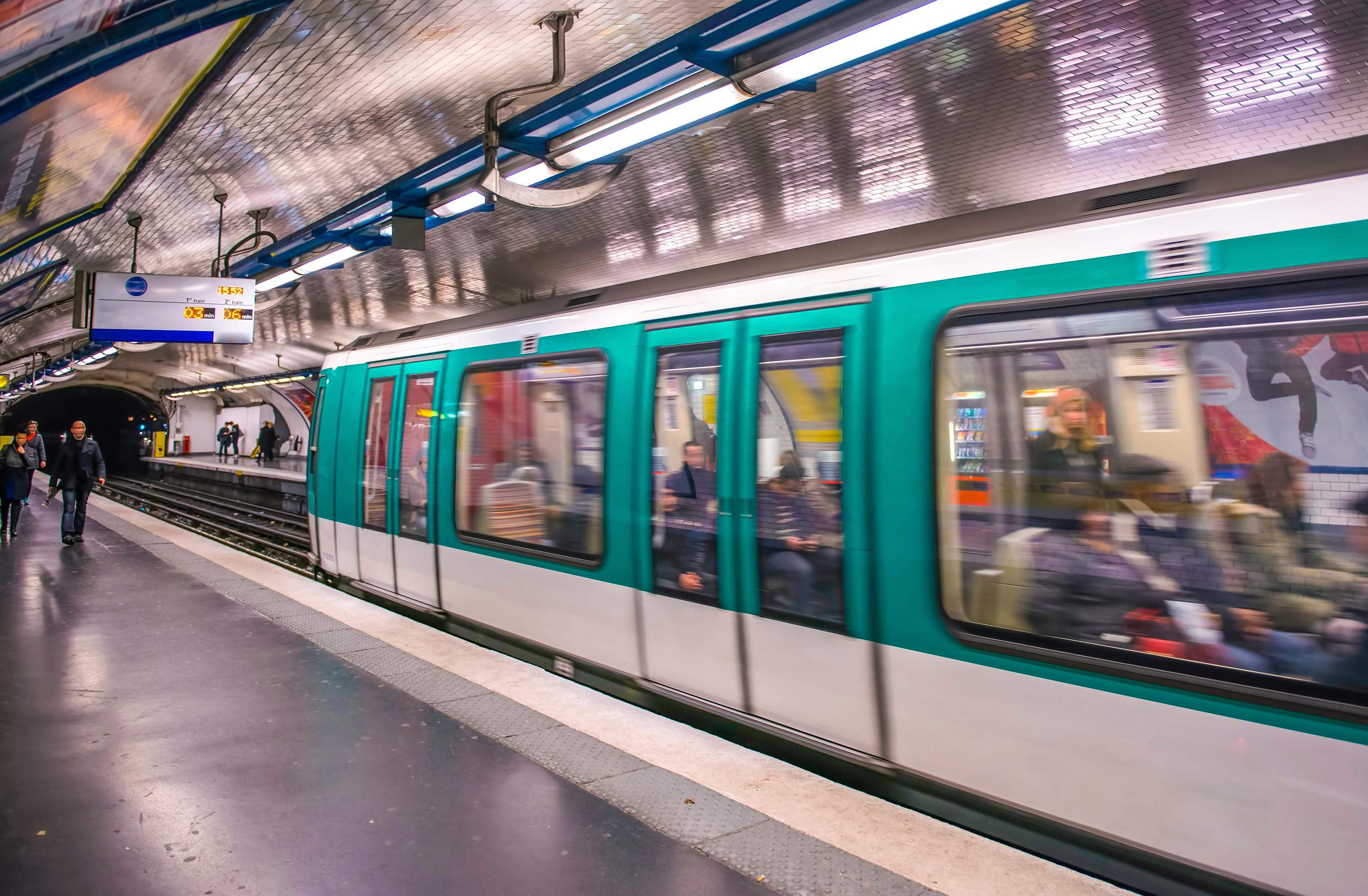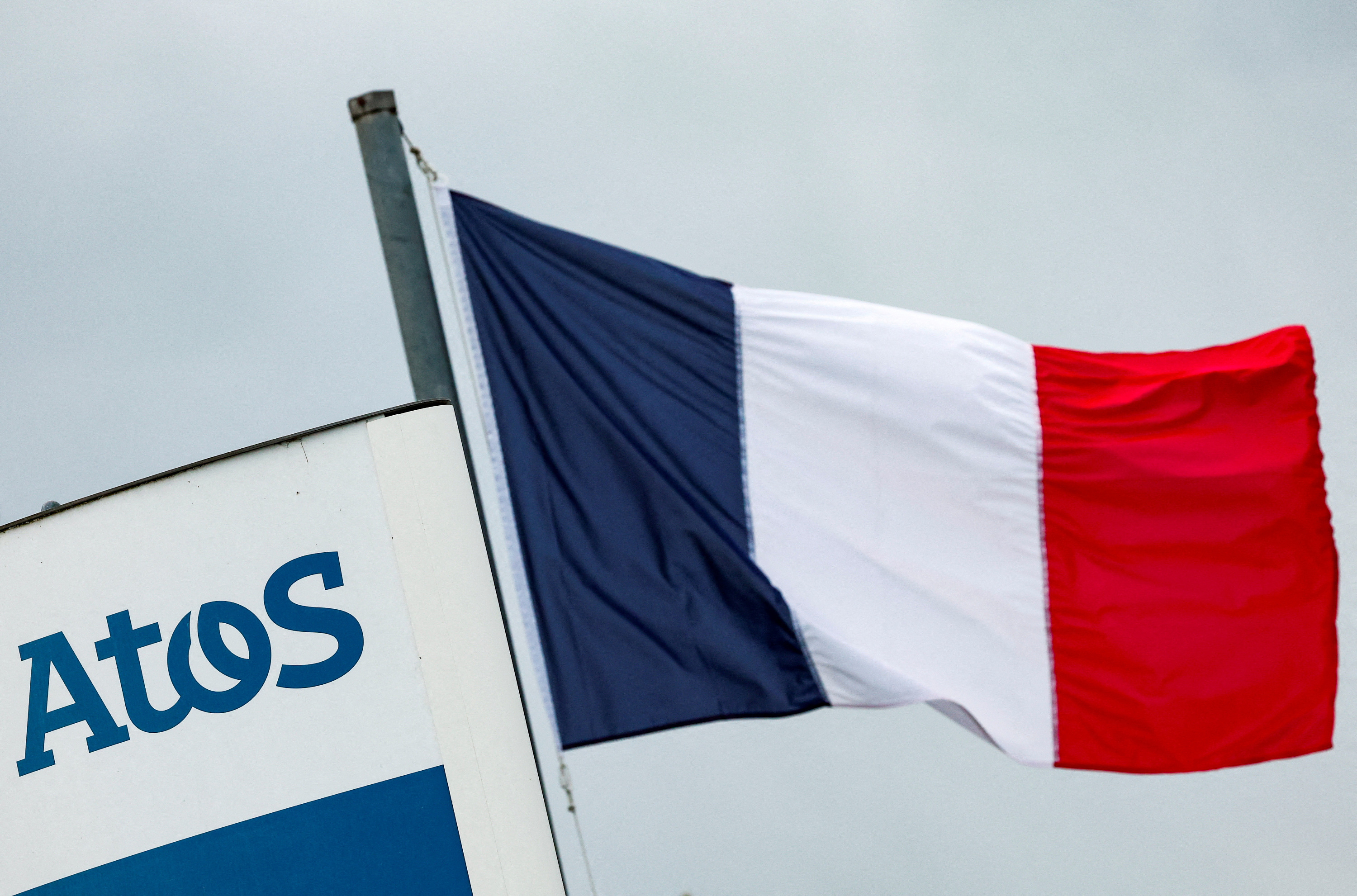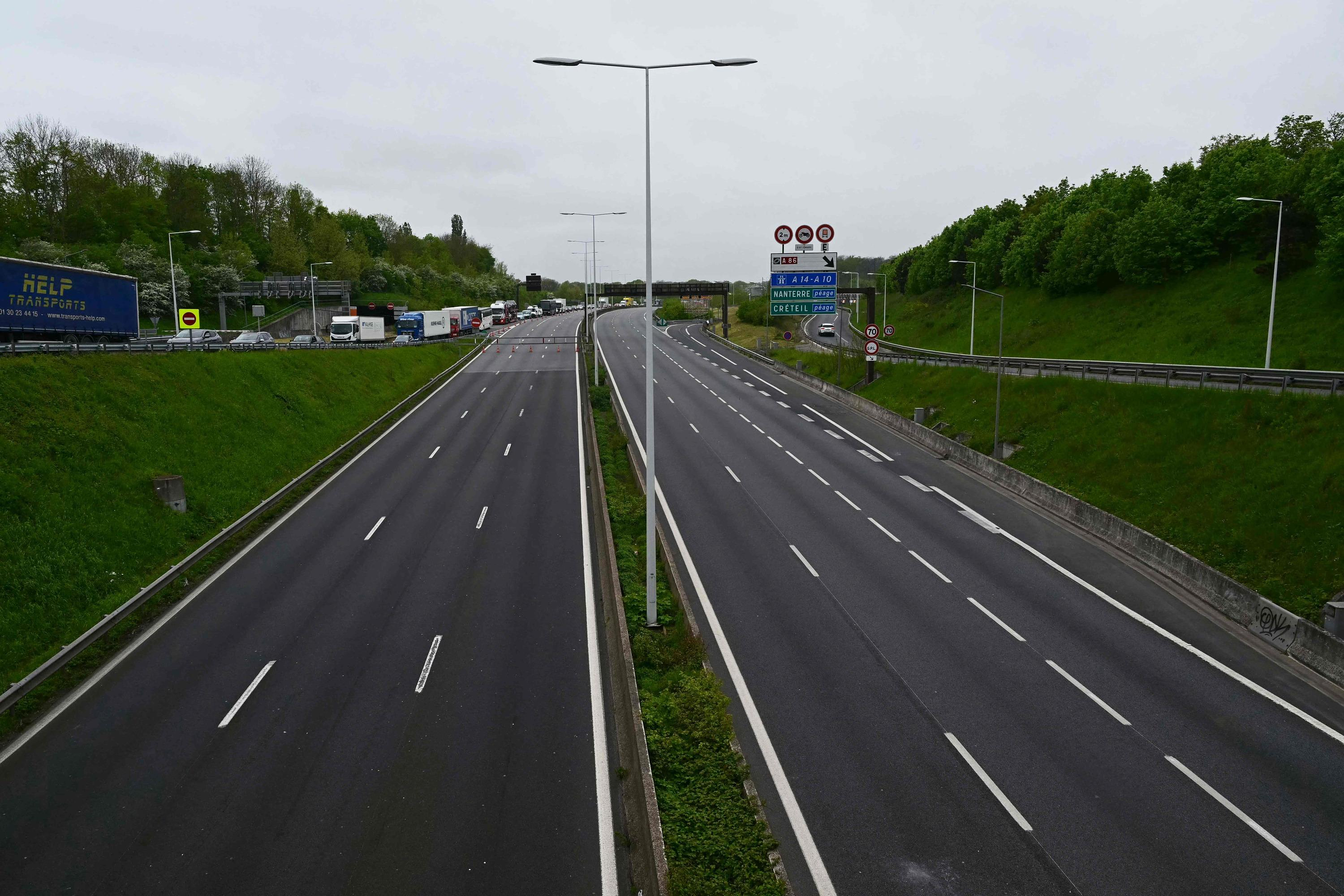What if the Paris metro started operating normally again? What if he was no longer a subject of complaints and recriminations, as he has been for a year and a half? This is Laurent Probst's bet: "In the spring, we are confident that the Paris metro will return to the situation of 2019", affirms the general director of IDFM (Ile-de-France Mobilités), the organization which finances public transport in Ile-de-France. This commitment can be seen as a provocation for many users frustrated by the deterioration of service on their line. “8 minutes of waiting for metro line 8 at 6 p.m. A crowded subway. Can we still consider that the RATP is providing a service? a user on X (ex-twitter) recently expressed annoyance.
But if the RATP and IDFM are making such promises, it is because the trend is starting to reverse in the metro. Certainly, in January, several lines remained damaged (3,6, 8, 12 and 13). But punctuality during peak hours increased overall on the network to 92.5% compared to 88.5% in December. Is this rebound not likely to be slowed down, when the group announced on Friday a loss of 109 million euros for a turnover of 6.5 billion? No, replies RATP, whose financial director, Jean-Yves Leclercq, specifies: “Our objective in 2024 is to succeed in the Olympic Games and to return to normal regarding our production in the metro for everyday travelers. »
In reality, if the Authority found itself in the red for the second year in a row, it is because of its management of some of London's famous red buses, which turned out to be a very bad deal. In its historical scope, Ile-de-France, despite inflation in electricity costs, RATP generated a slight profit of 18 million euros. Because traffic has resumed even if it remains 14% lower than in 2019. But above all because all stakeholders have given a boost to the operator of the Paris metro, buses and trams.
Very opportunely, the State compensated him to the tune of fifty million euros to compensate for the first confinement. And Ile-de-France Mobilités has decided to take responsibility for a slightly larger part of the salary increases at RATP than expected. She therefore allocated 125 million to the Régie last year. And will pay another 160 this year. For its part, the public transport operator did not sit idly by: in the second half of the year, it implemented a savings plan of several tens of millions of euros, notably concerning structural costs. It was not out of the goodness of their hearts that the RATP partners rushed to its aid. This is to allow the boss of the public company, Jean Castex, to deploy his plan to restart the metro, a plan which is starting to bear fruit. It is almost a national cause in the run-up to the Olympic Games. But this program requires a lot of resources.
“Jean Castex’s first project was to mass recruit metro drivers. The company lacked it following the Covid pandemic during which hiring was slowed down,” says Marc Pélissier, president of Fnaut (National Federation of Transport User Associations) Ile-de-France. But, since the end of the health crisis, candidates operating in a favorable job market have become demanding. There is no question of working odd hours, weekends or public holidays for a pay that does not follow. To deal with this, Jean Castex has untied his purse strings: 105 euros net monthly general increase in 2023, 100 euros gross this year.
Between 2022 and 2024, revaluations reached 15.1%. Of course, inflation absorbed most of it. But few companies have done better. The icing on the cake, the 120 million paid by IDFM to turn RATP's accounts on its activities in Ile-de-France into the green should allow agents to receive “a profit-sharing which should be as usual around 1 000 euros,” estimates Jean-Yves Leclercq, the financial director. With these financial gestures and all-out recruitment campaigns, the public transport company has achieved its objective: to hire 6,600 people in 2023, including 300 metro drivers and 650 station and station agents. This year, 250 additional drivers are expected to join the RATP. “In April there will be more than 3,000 drivers. This is enough to meet demand,” said Laurent Djebali, general secretary of FO at RATP.
This does not, however, prevent certain metros from running due to the absence of drivers. The fault lies in increasing absenteeism at RATP as elsewhere. To reduce it, RATP uses carrots and sticks. It is hunting down false work stoppages, with around a hundred dismissals for acts of this kind since 2022. At the same time, it seeks to improve the quality of life at work. A recently signed agreement plans to test the four-day week for 170 station agents or controllers on lines 5, 7, 9 and on the RER B. Also on the program, easier access to 1,100 social housing units this year, the implementation installation of exoskeletons to make certain tasks in maintenance workshops less difficult… Result: “Last year, the days of work stoppage fell by 7%”, we underline at the RATP.
But, on certain lines such as the 8, 12 or 13, the greater availability of staff is not enough to significantly improve the service. What do they have in common? They have outdated rolling stock and infrastructure. Thus, on lines 8 and 13, the trains which are more than thirty years old are running out of steam. They therefore break down more often. And replacement parts aren't always easy to find. Orders for rolling stock have been successfully placed. But they will not arrive for several years: in 2027 on line 7, in 2029 on line 8. In the meantime, RATP and IDFM are deploying emergency plans on these sick lines. On the 8, for example, 30 additional drivers were recruited. And a team of sniffer dogs has been introduced to intervene more quickly in cases of abandoned luggage. Furthermore, on all lines, the train will no longer be immobilized in the event of passenger discomfort. We understand that with these operational problems, the group is not setting financial objectives for the moment. It is always difficult to chase two hares at once.

 B:SM will break its investment record this year with 62 million euros
B:SM will break its investment record this year with 62 million euros War in Ukraine: when kyiv attacks Russia with inflatable balloons loaded with explosives
War in Ukraine: when kyiv attacks Russia with inflatable balloons loaded with explosives United States: divided on the question of presidential immunity, the Supreme Court offers respite to Trump
United States: divided on the question of presidential immunity, the Supreme Court offers respite to Trump Maurizio Molinari: “the Scurati affair, a European injury”
Maurizio Molinari: “the Scurati affair, a European injury”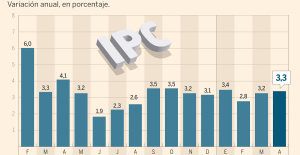 Inflation rises to 3.3% in April and core inflation moderates to 2.9%
Inflation rises to 3.3% in April and core inflation moderates to 2.9% Pedro Sánchez announces that he continues "with more strength" as president of the Government
Pedro Sánchez announces that he continues "with more strength" as president of the Government Irritable bowel syndrome: the effectiveness of low-carbohydrate diets is confirmed
Irritable bowel syndrome: the effectiveness of low-carbohydrate diets is confirmed Beware of the three main sources of poisoning in children
Beware of the three main sources of poisoning in children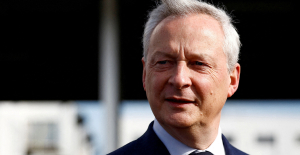 Relief at Bercy: Moody’s does not sanction France
Relief at Bercy: Moody’s does not sanction France More than 10 million holders, 100 billion euros: the Retirement Savings Plan is a hit
More than 10 million holders, 100 billion euros: the Retirement Savings Plan is a hit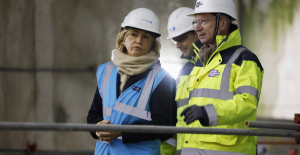 Paris 2024 Olympic Games: the extension of line 14 will open “at the end of June”, confirms Valérie Pécresse
Paris 2024 Olympic Games: the extension of line 14 will open “at the end of June”, confirms Valérie Pécresse Failing ventilators: Philips to pay $1.1 billion after complaints in the United States
Failing ventilators: Philips to pay $1.1 billion after complaints in the United States The Cannes Film Festival welcomes Omar Sy, Eva Green and Kore-Eda to its jury
The Cannes Film Festival welcomes Omar Sy, Eva Green and Kore-Eda to its jury Prisoner in Israel, a Palestinian receives the International Prize for Arab Fiction
Prisoner in Israel, a Palestinian receives the International Prize for Arab Fiction Harvey Weinstein, the former American producer hospitalized in New York
Harvey Weinstein, the former American producer hospitalized in New York New success for Zendaya, tops the North American box office with Challengers
New success for Zendaya, tops the North American box office with Challengers Skoda Kodiaq 2024: a 'beast' plug-in hybrid SUV
Skoda Kodiaq 2024: a 'beast' plug-in hybrid SUV Tesla launches a new Model Y with 600 km of autonomy at a "more accessible price"
Tesla launches a new Model Y with 600 km of autonomy at a "more accessible price" The 10 best-selling cars in March 2024 in Spain: sales fall due to Easter
The 10 best-selling cars in March 2024 in Spain: sales fall due to Easter A private jet company buys more than 100 flying cars
A private jet company buys more than 100 flying cars This is how housing prices have changed in Spain in the last decade
This is how housing prices have changed in Spain in the last decade The home mortgage firm drops 10% in January and interest soars to 3.46%
The home mortgage firm drops 10% in January and interest soars to 3.46% The jewel of the Rocío de Nagüeles urbanization: a dream villa in Marbella
The jewel of the Rocío de Nagüeles urbanization: a dream villa in Marbella Rental prices grow by 7.3% in February: where does it go up and where does it go down?
Rental prices grow by 7.3% in February: where does it go up and where does it go down? Europeans: a senior official on the National Rally list
Europeans: a senior official on the National Rally list Blockade of Sciences Po: the right denounces a “drift”, the government charges the rebels
Blockade of Sciences Po: the right denounces a “drift”, the government charges the rebels Even on a mission for NATO, the Charles-de-Gaulle remains under French control, Lecornu responds to Mélenchon
Even on a mission for NATO, the Charles-de-Gaulle remains under French control, Lecornu responds to Mélenchon “Deadly Europe”, “economic decline”, immigration… What to remember from Emmanuel Macron’s speech at the Sorbonne
“Deadly Europe”, “economic decline”, immigration… What to remember from Emmanuel Macron’s speech at the Sorbonne These French cities that will boycott the World Cup in Qatar
These French cities that will boycott the World Cup in Qatar NBA: young Thunder coach Mark Daigneault named coach of the year
NBA: young Thunder coach Mark Daigneault named coach of the year Athletics: Noah Lyles in legs in Bermuda
Athletics: Noah Lyles in legs in Bermuda Serie A: Dumfries celebrates Inter Milan title with humiliating sign towards Hernandez
Serie A: Dumfries celebrates Inter Milan title with humiliating sign towards Hernandez Tennis: no pity for Sorribes, Swiatek is in the quarterfinals in Madrid
Tennis: no pity for Sorribes, Swiatek is in the quarterfinals in Madrid